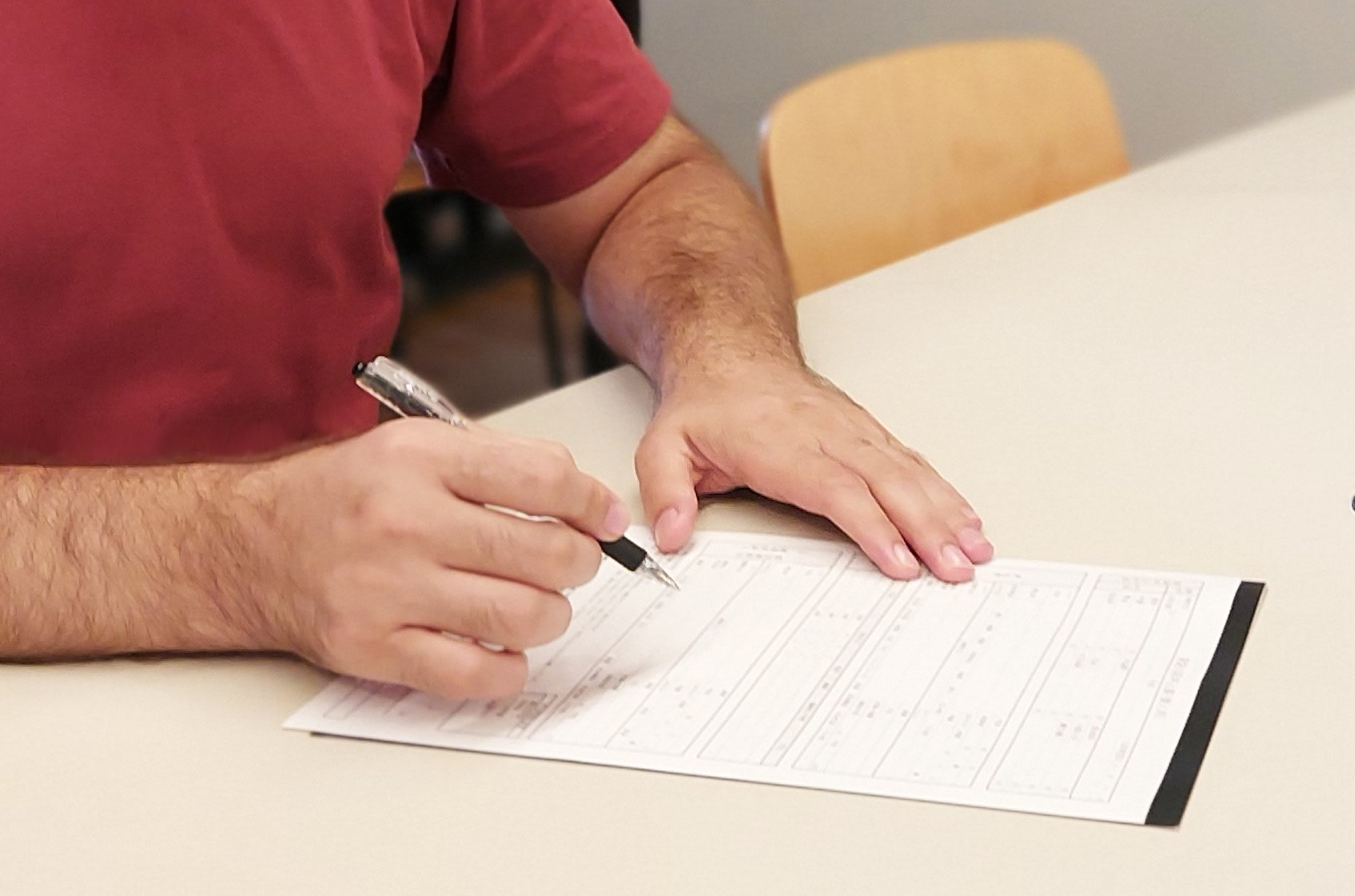Before moving to Japan, the first thing that will come to your mind is to find a living place. You need to search internet websites and social media platforms like Facebook or Instagram for a house or an apartment or you can contact a real estate agency. As it may seem difficult to find houses on your own, so, the best option will be to get help from real estate agencies.
Like every other rule in Japan, housing also has its own rule and regulations. landlords or real estate agents can help you by introducing you to these rules and also can help you to fill out the application forms.
You need to follow some steps before moving into a new house.
Find a Real Estate Agent
You can go to the real estate agency to start the process.
They will ask you to fill out a questionnaire
- Your Information (name, email, phone…)
- Area planning (Distance from the station, should be near to shopping malls, etc.)
- Home planning (which floor, size, layout, etc…)
- Budget planning (Maximum monthly budget, initial fee)
- Supplementary questions (Japanese language level, preferred move-in date….)
After you answered the questionnaire, the agent will then contact the property owner or management for the properties you want to check to set up viewing appointments.
After you choose your ideal apartment there is another form to be filled out in order to complete the procedure.
Rental Agreement
To complete this stage, you need to prepare any of these documents.
- Information about your current residence (proof of residence)
- Certificate of Eligibility
- Passport
- Resident Card
- Proof of income
- If you are a student, student’s ID, and admission letter.
Before signing the rental agreement, the real estate agent will explain the important points of the agreement to you. If there is something you do not understand, ask questions.
Particular sections may be added to your rental agreement. These details should be explained to you in person while referring to the written contract. Before signing the agreement, confirm that you fully understand whole parts of the application form and that they are not unfavorable to you.

To avoid problems when moving out, be sure to check the following:
- Cancellation Policy
- Non-refundable portion of your security deposit (敷き引き, shikibiki), if any
- Cost of restoring the apartment to its original condition after vacating
Fees When Signing a Contract
When making a contract, be prepared to pay around 6 months’ rent in initial fees. These fees can include:
- 敷金 Security deposit, typically 1-2 months’ rent
- 礼金: Gratuity fee paid to the landlord, typically 1-2 months’ rent; non-refundable; often called “key money”
- 仲介手数料: Real estate company’s commission, typically 1 month’s rent.
- 鍵交換費: Fee for changing the lock and key, typically ¥15,000-20,000
- 家賃: Rent is usually charged from the day your lease begins, not necessarily from the day you move in. If your contract begins in the middle of the month, rent for that month will be prorated based on the number of days remaining in that month.
- 共益費: Fee for common facilities or management of common areas
- 火災保険: Fire insurance, typically ¥10,000-20,000 for a 2-year term
Payment will need to be made in cash or by bank transfer. The term for a typical lease is 2 years. If you plan to stay for less than two years, you should mention this to the real estate agency beforehand.
Contract Renewal Fees
When you want to renew your contract, you usually have to pay a renewal fee of 1 month’s rent, agreed between you and the property owner. The premium for an additional term of fire insurance will also have to be paid.
Rental application form
There are different types of housing forms, we explain and translate this form here as an example.
If we divide this form into 5 sections then you will find it easy to understand each part carefully.
Part 1: Conditions of the Rental Application
- 賃貸入居申込書: Rental Application Form
- 個人用: For individuals (Note: As opposed to a corporate lease)
- 賃貸申込書 内容: Description of rental application
- 物件: Property
- 物件名: Property name
- 号室: Apartment number
- 入居希望日: Desired move-in date
H 年 月 日: The sample application above has an “H” in front of the kanji for “year”, this “H” means Heisei. We’re in the “Reiwa” now so if you were to write the date in the Japanese calendar format, it would be, for example, “R. 4 年” “2月” “15日” (meaning February 15, 2022, because 2022 is the fourth year of the Reiwa reign). It’s also ok to write the year as 2022.
- 所在地: Address of the property
- 内容: Description (literally “content”)
- 賃貸: Rent
- 町費/ 町会費: Neighborhood association fee
- 敷金: Deposit
- 保証金: Guarantor fee
- 共益費: Common area fee
- 礼金: Key money
- 火災保険: Property insurance
- 駐車料: Parking fee
- 月額合計: Monthly total
- 鍵交換: Lock exchange fee
Part 2: Applicant Information
- 申込者: Applicant
- 氏名: Full name. Fill in your full name, including the katakana format of your name.
- 現住所: Current address
- 性別: Gender 男 Male 女 Female
- 配偶者: Spouse 有 Yes 無 No
- 生年月日: Date of Birth
- 西暦: Your date of birth using this format. For example, 1985年7月1日 means July 1, 1985.
- 年齢: Age
- 転居理由: Why you are moving?
- 進学: For school
- 就職: For work
- 転職: Because you changed jobs
- 単身赴任: Because your work requires you to live in a location different than your home.
- 住み替え: Re-locating
- その他: Other (Fill in the reason)
- 自宅TEL: Jitaku: Home phone number
- 携帯TEL: Keitai: Mobile number
- Eメールアドレス: Email address
- 勤務先名: Name of the company where you are employed
- 業種: Industry category (what type of business your company is engaged in)
- 勤務先所在地: Address of the company
- 所属・役職: Department you work in
- 勤務年数: The number of years you’ve worked at the company
- 年収. Nenshuu: Your annual salary in yen is expressed in units of 10,000 yen. For example, 300万 means 3,000,000 yen
- 職業: Your occupation
- 会社員: Company employee
- 会社役員: Company executive
- 公務員: Civil servant
- 自営: Self-employed
- 学生: Student
- パート・アルバイト: Part-time worker
- 派遣: Dispatched work
- 団体職員: The employee of an association
- 年金受給: Pensioner
- その他: Other (fill in your occupation)
Part 3: Tenant Information
- 入居者: Tenant(s) information.
- We are omitting the fields that have already been translated above.
- 続柄: Relationship (to you). For example, a spouse, or child
- 勤務先・学校: Place of employment or school
Part 4: Guarantor and Emergency Contact Info
- 連帯保証人: Guarantor
- 緊急連絡先: Emergency contact.
Fill in the information for your guarantor or emergency contact. The fields in this section are the same as in the Applicant Information section.
Part 5: Your Signature
Translation:
Please be aware of the following when you are filling out the application.
- Please do not leave any of the sections blank
- We may verify your employer and guarantor information.
- Your guarantor must be a close relative or someone with a stable source of income. (Editor’s note: You will not be required to have a personal guarantor but instead be asked to use a guarantor company, in which case, the guarantor company info will be provided by the agent).
- On principle, we cannot accept lease applications from underaged persons, part-time workers, and high school students.
- If your application is rejected, we will not be able to tell you the reason you were rejected.
I do agree to the above explanation without reservation and tender this application.
I will not object in any way if I do not meet the conditions for moving into the property and my application is rejected.
Summary
It is important to fill out rental forms while moving to a new house. Those forms need more concentration and accurate answers. And real estate agencies can help you with filling them out
If you are thinking of moving but have not yet decided on a new place to live:
SUGEE Housing, operated by SUGEE, is a real estate agent service specializing in foreign nationals. We have English-speaking consultants ready to assist you in your apartment hunting. Please feel free to contact us.
Talk to a SUGEE consultant:
Related Articles
How Far Do I Have to Restore the Property to Its Original Condition?
How to Rent a House in Japan
Finding Cheap House Items in Japan
References:
[1] “10 Facts You Need to Know When House-Hunting in Japan”, Tsunagu Local, Publish 29 June 2020, Retrieved 25 July 2022 from https://www.tsunagulocal.com/en/1811/
[2] “Rental Agreement” Tokyo Tech Housing Support, Publish 28 January 2020, Retrieved 25 July 2022 from https://www.iad.titech.ac.jp/housing/en/apartment/agreement.html
[3] “Top 3 Insider Tips for Getting Your Apartment Application in Japan Approved” realestatejapan, Publish 2 January 2022, Retrieved 20 July 2022 from https://resources.realestate.co.jp/rent/top-3-insider-tips-for-getting-your-apartment-application-in-japan-approved/
[4] “How to Fill out a Japanese Apartment Lease Application: Cheat Sheet With Translation”, realestatejapan, Publish 2 January 2022 Retrieved 23 June 2022 from



